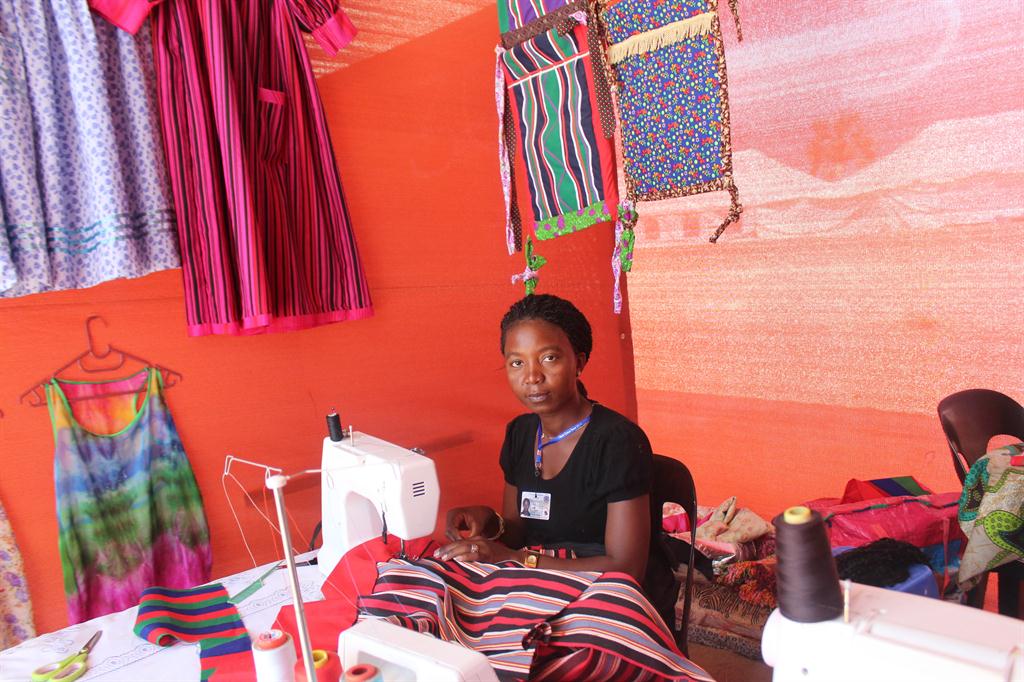Namibia needs innovation
There is a lack of innovation among Namibian small businesses, especially young entrepreneurs.
NDAMA NAKASHOLE
Because of a lack of innovation, there are few new and unique businesses being created in Namibia, says First Lady Monica Geingos.
Young Namibians tend to submit very similar business plans and proposals, she said at a conference on micro-lending held in Windhoek last week.
In their presentation on their youth entrepreneurship credit fund, the National Youth Council (NYC) also raised concern about the lack of uniqueness in business proposals.
Geingos said one of the concerns at the One Economy Foundation’s flagship entrepreneurial programme is mass submissions with the same plan.
The Foundation’s One Nation Fund offers collateral-free business loans.
She cited the example of someone in north-eastern Namibia who charged 120 people fees to submit loan applications to the Foundation on their behalf.
“When these 120 applications were submitted to us, they had the same plan,” Geingos said, adding that the Fund ended up rejecting all of them.
Geingos also warned against Facebook scams where people claiming to be from her office inbox people, offering them business loans at a fee.
Geingos called on the financial sector to collaborate in order to service a market that is inherently not profitable.
The NYC said limited funding could be one of the reasons why many young people have the same, limited business ventures.
Solutions
One of the pragmatic solutions proposed at the conference was the establishment of a database of products and service providers which would be easily accessible to entrepreneurs.
Training and mentoring of entrepreneurs before granting loans was another proposal.
The discussion concluded that there is a need to review the language used in documentation and to consider translation into indigenous languages.
Other solutions are to strengthen collaboration with key agencies to promote regional and international exposure to promote innovation, as well as to focus on value addition through import substitution.
Promoting agricultural productivity, decentralising renewable energy for grassroots entrepreneurs and better coordination between rural-based private- and public-sector agencies were also suggested.
The discussion called for the adoption of the EMPERETEC model by the government. It is a programme established by the United Nations Conference on Trade and Development (UNCTAD) to promote the creation of sustainable, innovative, and internationally competitive small- and medium-sized enterprises (SMEs).
Engagement with local authorities to revise strategies regarding business trading premises for micro traders was another solution agreed upon.
Other solutions include: developing software that would help micro-lenders to process applications; entrepreneurial training at school level; creating awareness about relevant laws and regulations; rural industrialisation; and increased support for the Namibia Correctional Services’ rehabilitation programme and Reintegration Fund for ex-inmates.
Because of a lack of innovation, there are few new and unique businesses being created in Namibia, says First Lady Monica Geingos.
Young Namibians tend to submit very similar business plans and proposals, she said at a conference on micro-lending held in Windhoek last week.
In their presentation on their youth entrepreneurship credit fund, the National Youth Council (NYC) also raised concern about the lack of uniqueness in business proposals.
Geingos said one of the concerns at the One Economy Foundation’s flagship entrepreneurial programme is mass submissions with the same plan.
The Foundation’s One Nation Fund offers collateral-free business loans.
She cited the example of someone in north-eastern Namibia who charged 120 people fees to submit loan applications to the Foundation on their behalf.
“When these 120 applications were submitted to us, they had the same plan,” Geingos said, adding that the Fund ended up rejecting all of them.
Geingos also warned against Facebook scams where people claiming to be from her office inbox people, offering them business loans at a fee.
Geingos called on the financial sector to collaborate in order to service a market that is inherently not profitable.
The NYC said limited funding could be one of the reasons why many young people have the same, limited business ventures.
Solutions
One of the pragmatic solutions proposed at the conference was the establishment of a database of products and service providers which would be easily accessible to entrepreneurs.
Training and mentoring of entrepreneurs before granting loans was another proposal.
The discussion concluded that there is a need to review the language used in documentation and to consider translation into indigenous languages.
Other solutions are to strengthen collaboration with key agencies to promote regional and international exposure to promote innovation, as well as to focus on value addition through import substitution.
Promoting agricultural productivity, decentralising renewable energy for grassroots entrepreneurs and better coordination between rural-based private- and public-sector agencies were also suggested.
The discussion called for the adoption of the EMPERETEC model by the government. It is a programme established by the United Nations Conference on Trade and Development (UNCTAD) to promote the creation of sustainable, innovative, and internationally competitive small- and medium-sized enterprises (SMEs).
Engagement with local authorities to revise strategies regarding business trading premises for micro traders was another solution agreed upon.
Other solutions include: developing software that would help micro-lenders to process applications; entrepreneurial training at school level; creating awareness about relevant laws and regulations; rural industrialisation; and increased support for the Namibia Correctional Services’ rehabilitation programme and Reintegration Fund for ex-inmates.





Kommentaar
Republikein
Geen kommentaar is op hierdie artikel gelaat nie